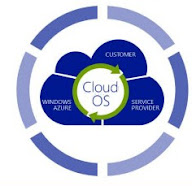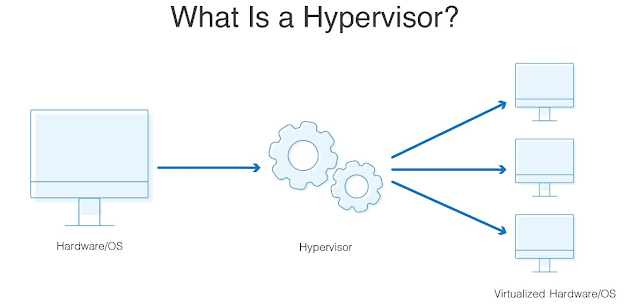What is IOT and which companies are working on it?
IoT stands for the "Internet of Things", and it refers to a network of physical devices, vehicles, home appliances, and other items embedded with electronics, software, sensors, and connectivity that enables them to connect, collect, and exchange data over the internet. In simpler terms, IoT refers to the concept of connecting everyday objects to the internet, allowing them to send and receive data to improve efficiency, safety, and convenience.
IoT has the potential to revolutionize various industries, including manufacturing, healthcare, transportation, and energy. For example, in healthcare, IoT can enable remote patient monitoring, smart medical devices, and better data collection and analysis to improve patient outcomes. In transportation, IoT can enable better tracking and monitoring of vehicles, traffic flow, and logistics. Overall, IoT has the potential to transform the way we live and work, making our environments smarter, more efficient, and more connected.
There are many companies working on IoT (Internet of Things) technologies, and the list is constantly changing as new players enter the market and others merge or are acquired.
Here are some of the notable companies
working on IoT:
Google: Google has invested heavily in IoT through its Nest products, which include smart thermostats, cameras, and smoke detectors, as well as through its cloud platform that offers IoT services.
Amazon: Amazon has a strong IoT presence through its Echo smart speakers, Ring video doorbells, and other connected devices, as well as its AWS cloud platform that offers IoT services.
Microsoft: Microsoft offers Azure IoT services, which enable businesses to connect, monitor, and manage IoT devices and data.
IBM: IBM offers Watson IoT solutions, which include tools for connecting and managing IoT devices, analyzing data, and building custom IoT applications.
Intel: Intel offers a range of IoT hardware and software solutions, including processors, modules, and development tools.
Cisco: Cisco has a range of IoT solutions, including networking hardware and software, security solutions, and IoT platforms.
Siemens: Siemens offers a range of IoT solutions for industrial applications, including software for monitoring and controlling machines and processes.
Bosch: Bosch offers a range of IoT solutions for various industries, including smart home devices, connected cars, and industrial automation.
Qualcomm: Qualcomm offers a range of IoT hardware and software solutions, including processors, modems, and development tools.
Honeywell: Honeywell offers a range of IoT solutions for various industries, including smart buildings, connected homes, and industrial automation.
Note that this is not an exhaustive list and there are many other companies working on IoT.
Cost of IOT
The cost of IoT varies depending on the specific
application, the type of devices, the amount of data collected and processed,
and the complexity of the infrastructure required to support the deployment.
For example, the cost of deploying IoT sensors in a factory to monitor equipment could range from a few hundred dollars to several thousand dollars, depending on the number of sensors required, the type of sensors, and the complexity of the analytics needed to make sense of the data. Similarly, the cost of deploying IoT in a smart city application could range from a few thousand dollars for a small pilot project to millions of dollars for a large-scale deployment.
It's worth noting that the cost of IoT has decreased in recent years, thanks to advances in technology and increased competition in the market. In addition, cloud-based IoT platforms have made it easier and more cost-effective for businesses to deploy and manage IoT devices at scale.
Ultimately, the cost of IoT will depend on the specific use case and the level of investment required to achieve the desired outcomes. It's important to carefully consider the potential return on investment when evaluating IoT projects, taking into account both the costs and the benefits of the deployment.
Benefits of IOT
IoT offers numerous benefits across various industries,
including:
Improved Efficiency: IoT can help optimize processes and
operations, enabling businesses to reduce costs, increase productivity, and
improve efficiency. For example, in manufacturing, IoT sensors can monitor
equipment performance and predict maintenance needs, reducing downtime and
increasing efficiency.
Better Decision Making: IoT can provide real-time data and analytics, enabling businesses to make data-driven decisions quickly and efficiently. For example, in agriculture, IoT sensors can provide data on soil moisture, temperature, and other factors to help farmers make decisions on irrigation, planting, and harvesting.
Increased Safety and Security: IoT can help improve safety
and security in various environments, including homes, workplaces, and public
spaces. For example, in healthcare, IoT sensors can monitor patient health and
alert medical professionals of potential issues.
Enhanced Customer Experience: IoT can help businesses provide
better products and services to their customers. For example, in retail, IoT
can enable personalized recommendations and offers based on customer behavior
and preferences.
Environmental Sustainability: IoT can help reduce waste and
improve sustainability by optimizing resource usage. For example, in smart
cities, IoT sensors can monitor energy usage and traffic flow to reduce
congestion and emissions.
Overall, IoT offers numerous benefits across various
industries, and its potential impact on society is significant. As IoT
technology continues to evolve and mature, it is expected to drive innovation
and transform the way we live and work.
Drawbacks of IoT
While IoT offers many benefits, there are also several potential drawbacks and challenges that need to be addressed.
Here are some of the
drawbacks of IoT:
Security and Privacy Risks: IoT devices are vulnerable to hacking and cyberattacks, which can compromise sensitive data and put users' privacy at risk. In addition, the large amounts of data collected by IoT devices can raise privacy concerns if not properly secured.
Interoperability Issues: IoT devices are often developed by different manufacturers and may use different communication protocols, making it difficult to ensure that devices from different vendors can work together seamlessly.
Data Overload: The large amounts of data generated by IoT devices can be overwhelming, making it challenging to manage and analyze the data effectively.
Cost: The cost of deploying and managing IoT devices can be significant, especially for small and medium-sized businesses.
Maintenance and Upkeep: IoT devices require regular maintenance and updates to ensure they continue to operate effectively and securely.
Dependency on Connectivity: IoT devices rely on reliable connectivity to function properly, and network outages or disruptions can lead to significant downtime and lost productivity.
Overall, these drawbacks highlight the importance of addressing security and privacy concerns, ensuring interoperability and data management, and carefully evaluating the costs and benefits of IoT deployments. As IoT technology continues to evolve and mature, it is expected that these challenges will be addressed and overcome, making IoT more accessible and beneficial for businesses and consumers.





Comments
Post a Comment